Welsh charity treks: Are good causes the only ones to benefit?
- Published
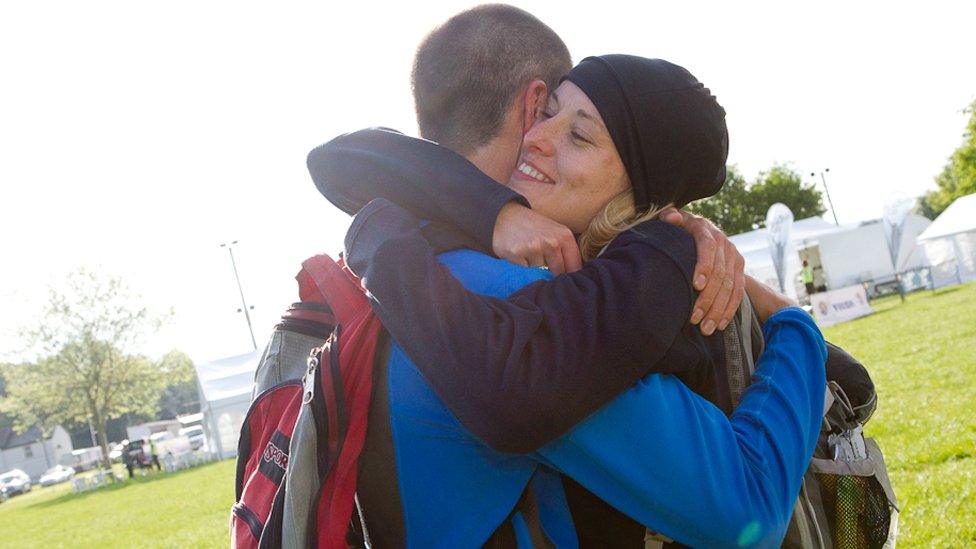
There was a time when raising money for charity involved little more exertion than simply opening your purse and dropping coins into a collection box.
But in recent years, fundraising has stepped up a gear with volunteers keen to push themselves to their limits.
Around Wales, mountain treks, marathons, cycle rides and triathlons, are becoming big business for charities - and it seems that trend is set to continue.
This weekend about 600 walkers will congregate in the Brecon Beacons for the fourth annual Trekfest challenge, external where they will do either 100km (60 miles), 75km (46 miles), 50km (31 miles) or 25km (15 miles) to raise money for their chosen causes.
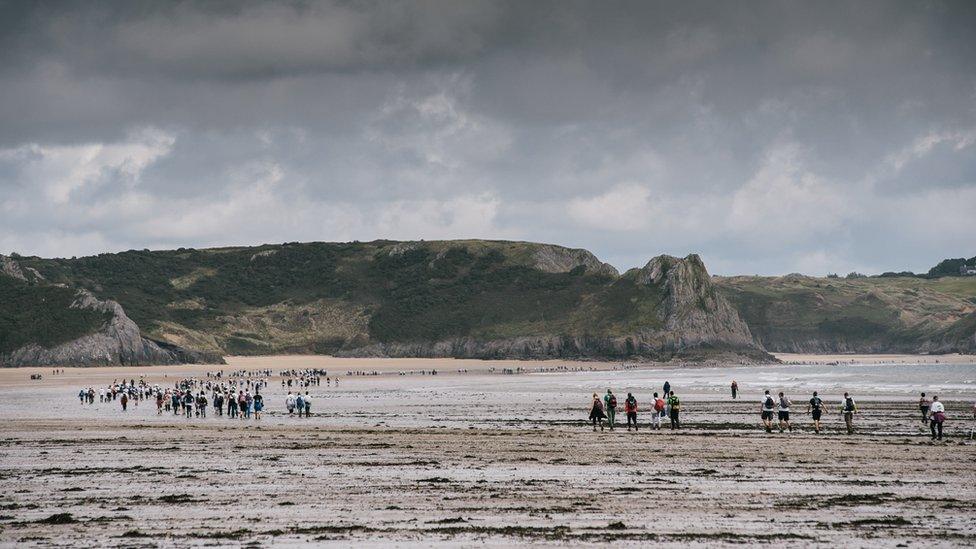
The Gower MacMarathon attracts walkers from all over the UK
The organisation which runs it said the event had become "hugely popular" - so far, some 2,500 walkers have scaled the peaks of the beacons in the name of fundraising and the numbers taking part are rising each year.
It is not alone. Macmillan Cancer Support, external said its fundraising walks are attracting thousands of people and it has added two new walks this year.
In 2015, its flagship Gower MacMarathon - which is celebrating its 19th year - broke through the £1m barrier of money raised for charity.
So what is behind the surge in challenges? And are good causes the only ones to benefit?
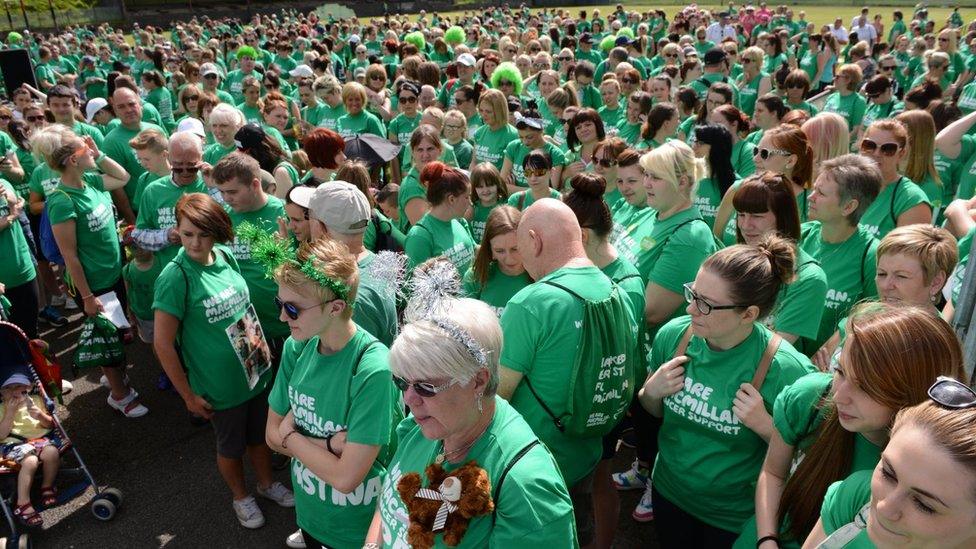
Macmillan Cancer Support's walk in Rhondda now has 1,000 people each year
"The way that we see it, people want to feel they're doing something - they want to focus on an end goal," said Amy White, Macmillan's fundraising manager for walks in Wales.
"Taking on something like a walk, they have something to work towards. They are raising money but also working towards personal goals and it's brilliant exercise.
"Our Rhondda walk is now in its eighth year. It started with 30 to 40 people and now has 1,000 walkers each year."
Adrian Barsby, chairman of the Wales Tourism Alliance, which represents 7,000 businesses, said the industry was feeling the impact.
"These events can only be positive for tourism in Wales," he said.
"These people stay overnight, they spend their money when they are here and they see things that might make them want to return.
"Tourism contributes 10-11% of Wales' GDP so the more people who come here the better."

Organising a Trekfest event in the Brecon Beacons
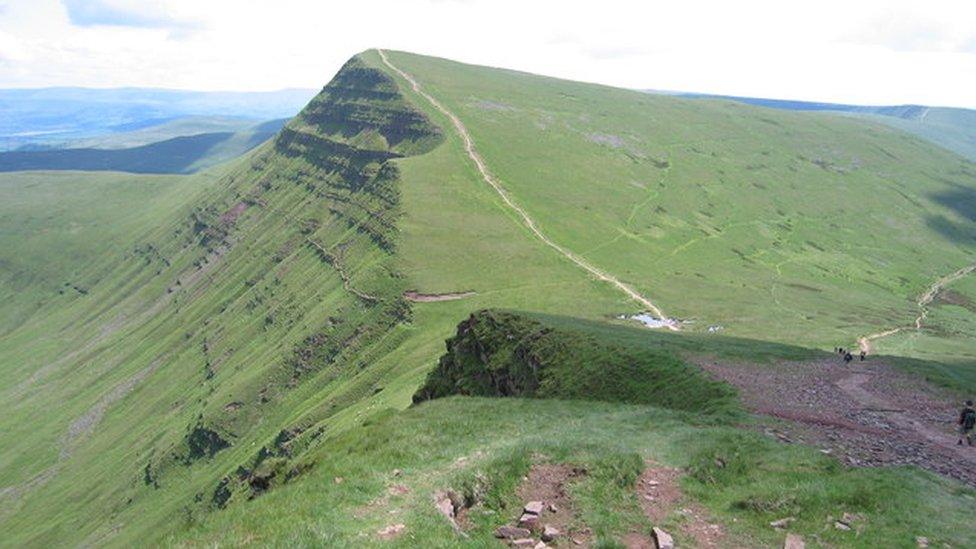
The organisation has to liaise with and pay a fee to National Resources Wales, the National Trust , Chester Masters (Pen y Fan estate management) and the Brecon Canal and River Trust
Trekfest is solely responsible for safety aspects during the event. It has more than 40 professional mountain leaders, medics, challenge guides, checkpoint coordinators working at the event - all are paid professionals
It performs "extensive pre-event reconnaissance" and has detailed emergency procedures in place - both out in the field and the on-call team back at base

But while charity events can showcase Wales' natural wonders, there is a fear too many visitors might spoil the tranquillity and scenery which are part of the country's appeal.
Adventurer Tori James, external - the first Welsh woman to climb to the summit of Mount Everest - said places like Pen y Fan in the Brecon Beacons and Snowdon had become hotspots for charity trekkers every weekend during the summer.
"It's a good thing in terms of getting people outdoors, it attracts people who wouldn't normally enter into the mountains - it makes the mountains a bit more accessible," she said.
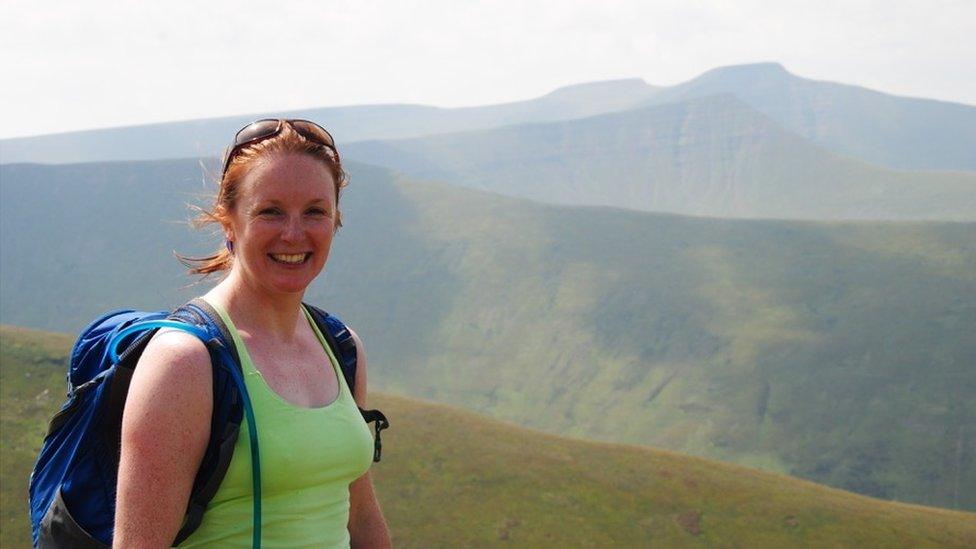
Tori James is taking part in the Welsh Three Peaks Challenge
"But at the same time, it does bring pressure to some of the most popular areas, like with car parks. And also erosion, litter and congestion.
"I think it's about educating people how there are different routes on the mountains and you can support charities that actually look after the mountain and help with erosion issues and maintenance."
It is an issue that is also of concern to Tegryn Jones, chief executive of the Pembrokeshire Coast National Park Authority.
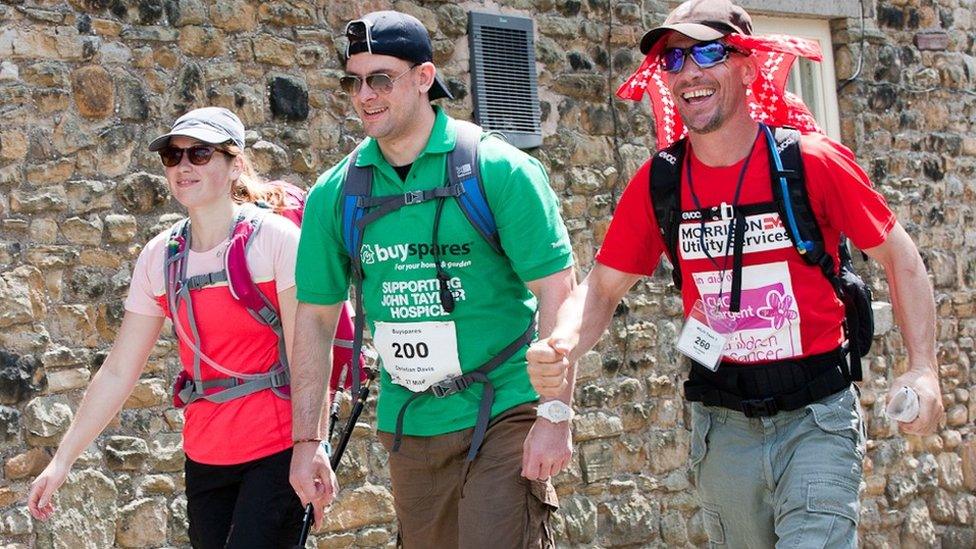
"Where we have seen the problem is when we have things like triathlons when the weather is a bit wetter and lots of people are running along the coastal path and that can damage it," he said.
"Some charities are very well organised and work very closely with us - but others, we hardly know what's happening. So it's about acting responsibly."
But, ultimately, an increase in people being outdoors is a good thing, Ms James said.
"I'm taking part in the Welsh Three Peaks Challenge myself this weekend and I can see the appeal in these events," she said.
"In a world where we're stuck indoors more behind a computer screen, they are giving people the confidence to get outdoors and see spectacular scenery.
"I have been to some amazing places around the world but in the beacons, the views still take my breath away - and then you have the beauty of the coastal paths. Wales has so much to offer."

But, of course, there is a downside to holding so many outdoor events in Wales - the weather.
"It can really make or break a walk," added Ms White.
"You can have x amount of people signed up to take part but on the day people don't turn up because of downpours.
"But that's out of our hands. We just have to keep building on the momentum and make sure these events continue to have impact."
- Published25 January 2016
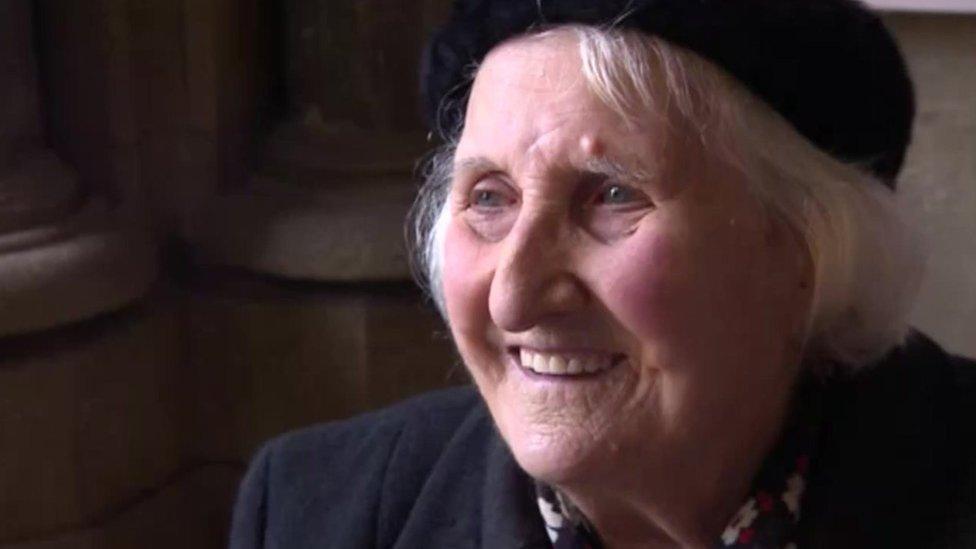
- Published23 September 2015
